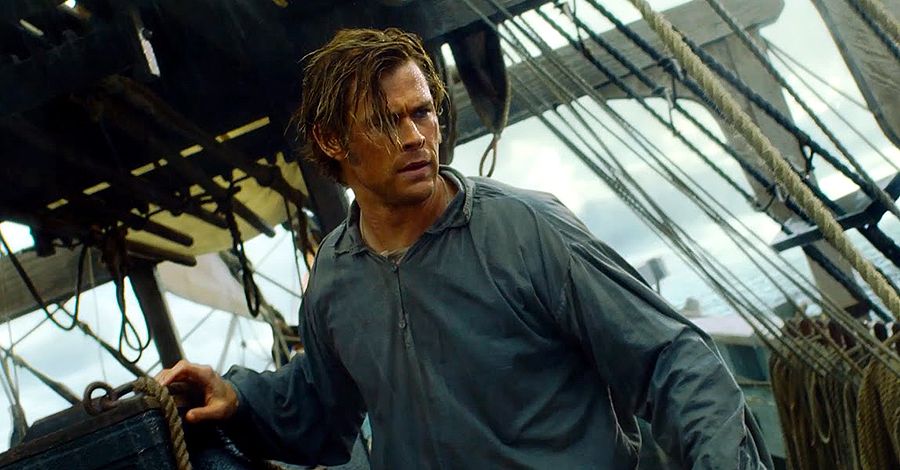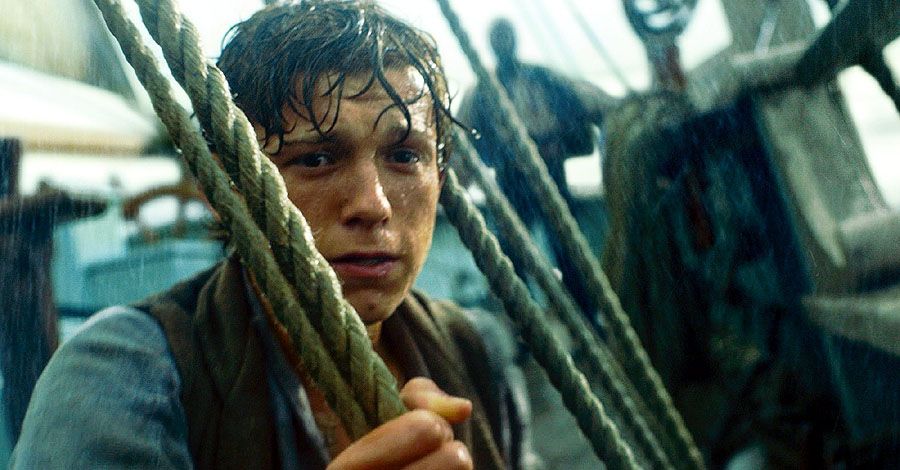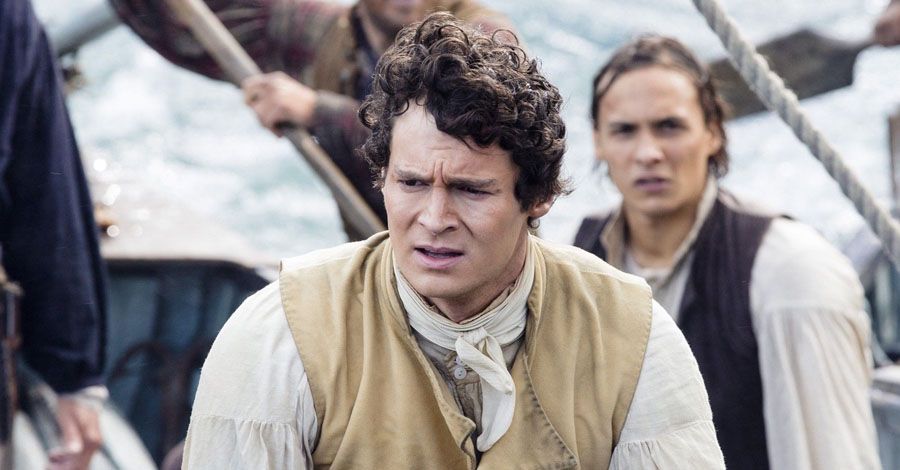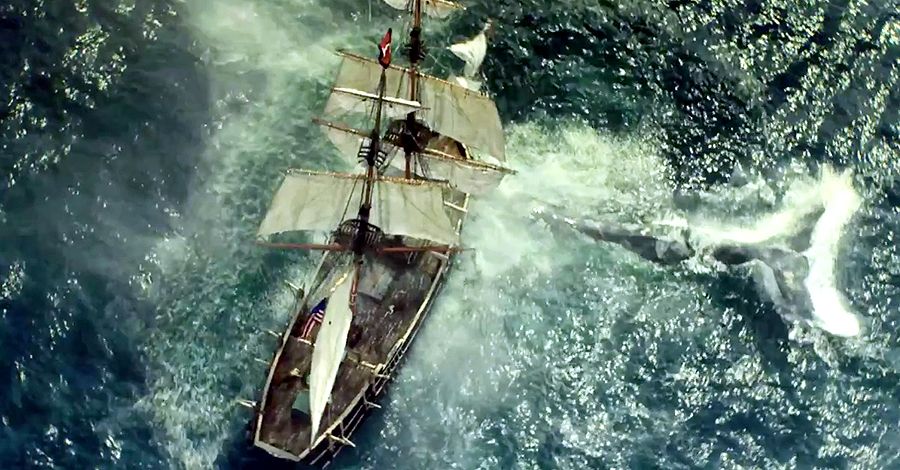The true story of the sinking of the Essex is extraordinary.
In 1820, far from land in the middle of the Pacific Ocean, the whaling ship went down after being attacked by a monstrous whale its crew had hoped to kill for its oil. Their fates relied on two warring men: neophyte Capt. George Pollard Jr., whose good family name didn't make up for his lack of sailing experience, and first mate Owen Chase, a charismatic and pushy wannabe captain who'd better earned the trust of the crew. A terrible situation was made worse by rivalry and hubris, spinning the Essex crew into an ill-fated journey from starvation to cannibalism to eventual salvation.
This story is so rich with human drama that it's little wonder it inspired Herman Melville's masterpiece "Moby Dick." Unfortunately, director Ron Howard's film adaptation "In the Heart of the Sea" rewrites history to make a less interesting epic that owes more to fantasy than it does to fact.
I'm not saying such historical dramas need to remain doggedly true to their source material. Their job is entertainment, not necessarily education. But that's precisely the problem: Howard's translation -- based on Nathaniel Philbrick's thorough book of the same name -- chucks its most interesting elements overboard to introduce"Moby Dick" and "Jaws" elements that feel jarring and ludicrous. Sure, that allows for the CG-whale action so heavily promoted in the film's trailers, but it fails to make for an engaging or even very exciting adventure.
"Thor" star Chris Hemsworth shed his brawn and adopts a peculiar, all-over-the-place accent (part Bostonian, part Australian, part Southern, part Martian?) to play Chase, remembered as a brave man who made major missteps in the Essex's quest for survival. But rather than recognize those complexities, the script by Charles Leavitt chisels Chase into an underdog regularly derided for coming from a family of farmers rather than seamen. Although whaling is his life ambition, this journey abruptly shows Chase pondering whether it's the vocation he really wants. Our first hint of that doesn't come when he's bickering with his "please don't go" stock wife (Charlotte Riley) before the voyage, but when he and cabin boy Tom Nickerson (future Spider-Man Tom Holland) are sprayed with whale blood at the end of a violent chase. It seems less an earned character arc and more an obvious ploy to make Chase more agreeable to modern audiences turned off by the gruesome slaughter of majestic animals.
His rival Pollard (Benjamin Walker) is likewise revised to be less complex, but in this case more outwardly despicable. He's shown eating fancy meals while his men scrape by on sloppy meatless stews, openly mocking Chase in front of the crew, and making asinine decisions.
Most frustratingly, "In the Heart of the Sea" massively mars a key moment where these two bullheaded men battled over which direction to sail once the ship sinks. Mixed into their arguments were elements of superstition, xenophobia, mutual mistrust and nautical miscalculations that cost many lives. Historically, it's a defining moment for the men of the Essex, but in the movie, it's completely missing.
To their credit, Hemsworth and Walker bring a bristling chemistry to their onscreen rivalry. "In the Heart of the Sea" works best when the two are fighting to overcome their hatred of each other (and what each other represents) to do what's best by their men. When he's not locking horns with Walker or fighting the sea and its cruelties, Hemsworth shares some father figure-son moments with the young Nickerson. But these human relationships are diluted by the pumped-up whale war, in which the great white beast that would be Moby Dick stalks Chase and his team as if it clings to a personal vendetta.
Admittedly, that will probably play better to audiences that don't know the real story. But when the whale goes after each of the whaling/rescue rafts, I found it hard not to laugh. For one brief moment, I hoped that Chase was so damaged by the shipwreck that he was imagined the stalking whale; that would have brought an interesting layer to his character and the drama. But nope. Instead, this true story is halfheartedly spun into a creature feature in its second act, which could have been cool if Howard hadn't bungled its action.
Geography is a major issue, not just for the men of the Essex, but the for the film. Action sequences on boats take for granted audiences' familiarity with their layouts. Cutting to close-ups of actors in different parts of the ship (or different boats entirely) muddies what's happening where, bleeding tension and comprehension during the biggest set pieces. The bombastic orchestra score by Roque Baños plays as emotional cue cards, signaling to the audience that this is meant to be very dramatic.
Similarly, Howard uses title cards to tell us how many nautical miles our heroes are from land, instead of employing visual cues like, say, a map. Stakes are lost amid messy geography in both respects, and so the action is a costly blur lacking impact and failing to underscore the tragedy. Likewise, the action and storytelling are staggered by a salty Old Nickerson (Brandon Gleeson) and muse-seeking Herman Melville (Ben Whishaw) popping in to talk about the latter's developing novel and the former's survivor's guilt.
After a first act that sets up a promising rivalry, then a second act that plays like a garish monster movie, the third attempts to wedge in some pat political commentary. The whaling industry -- uncaring about the victims of the Essex and determined to carry on business as usual -- is none-too-subtly compared to the modern oil companies that ravage animals and oceans. As Melville is about to walk off into the misty dawn, this connection (and all the apparently intended criticism therein) is lazily laid down as Nickerson marvels, "Oil from the land! Fancy that!"
I won't tell you the book "In the Heart of the Sea" is better than the movie. I don't tend to find those a fair comparison, as books and films are very different animals. Film demands context, characters and certain complexities be shed from their source materials to make a stirring and sleek story that can thrill audiences in two hours. I will tell you, however, that Howard and Leavitt mangled the majestic beast that was Philbrick's great book to make a surprisingly mediocre movie.
"In the Heart of the Sea" today nationwide.




